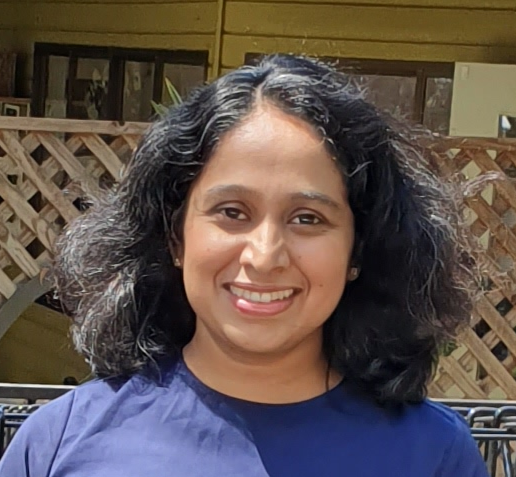
Donald Cole
Emeritus Professor, Dalla Lana School of Public Health.
University of Toronto, Canada
As a longstanding researcher in IDRC’s Ecohealth tradition1 and global health research mentor2, I appreciated being part of the review panel for this research competition. The rationale and opportunities for co-benefits through multi-sectoral food system change are well iterated by Fanzo and colleagues3, the High Level Panel of Experts on Food Security and Nutrition4 and Willett and colleagues5, all cited by different awardees. Similarly, much has been written about potential mechanisms for inter-sectoral approaches to food system change, as in the policy analysis conducted by Parsons & Hawkes6 for the European Union.
Yet how best to conceptualize and design research of such inter-sectoral approaches which can itself contribute to food system change is a daunting prospect for researchers at whatever career stage. I remember working on a mixed methods proposal to examine urban agriculture contributions to food security and nutrition, while co-teaching population health intervention research. I openly admitted how hard designing such complex research was, so the graduate students and we debated the pros and cons of different research foci, framings, aims, methods and designs for our different research proposals. My thoughts here about ways to nurture researcher journeys which contribute to food system change are rooted in such dialogue. I shall orient my reflections around four key choices emerging researchers and their mentors face: discipline/sector(s), level(s), stance, and expectations.
Which disciplines/sectors to involve?
The panorama of sectors which need to be involved in agri-food systems transformation7 provides a breath-taking spectrum of research opportunities. For many researchers, their disciplinary backgrounds and institutional locations overly influence both mentors and mentees choices. For example, a suite of proposals which I reviewed for this competition had difficulty moving beyond their agricultural and nutritional science strengths to engage with other sectors, while the accepted proposals in this compendium do involve multiple sectors.
Fortunately, Immersion in transdisciplinary teams can help trainees expand understandings of which sectors and disciplines are important. For example, undergraduates from multiple disciplinary backgrounds doing their honours thesis placements with an agriculture for health and environment project in the Ecuadorian Andes described the expansion of their conceptual frameworks and methodological tools8. In producing policy recommendations for emphasizing nutritional benefits and decreasing environment and health risks associated with urban agriculture in Kampala, masters9 and doctoral10 students contributed their disciplinary methodological expertise to a multi-sectoral research project. Ways of expanding sectoral horizons, and the associated theoretical and methodological approaches include sets of short intensive courses promoting collaborative learning for both trainees at various career stages11 and their mentors12.
What scales or levels to span?
Given the multi-level nature of food systems with numerous links across levels, scoping the levels upon which to focus is a difficult one. Household procurement and consumption practices (Chuma Banji Chinzila, this compendium) is a focus which Ecuadorian former doctoral students, now colleagues, have found helpful13. Linkages among food systems, health risks and environments can also be assessed through populations of households using existing data sets (as per Kanchana Wickramasinghe, this compendium) or generating primary data in conjunction with members of producer households. The latter approach was adopted by Peruvian masters trainees and research staff in working with small scale farmers14 and in Ecuador with members of agroecological associations15. Agroecology, as promoted by the UN Food and Agriculture Organization (see Community of Practice (CoP) on Family Farming and Agroecology), aims to apply “regenerative ecological principles to agricultural practices…and integrates these practices with environmental, social and economic priorities to contribute to sustainable food systems”16. Such an approach spanned households and communities, much like Ranaivo Andriarilala Rasolofoson’s proposal (this compendium) to engage with forest communities in community nutritional interventions.
The municipal level, the focus of Jenny Melo Velasco (this compendium) is highly appropriate, given the increasing proportion of populations living in cities. Related is that by David Smith (this compendium) who plans to explore multiple levels of drivers and barriers to inclusive governance of urban food markets. My own engagement with trainees and researcher-practitioners in East Africa17 and Toronto18 highlighted the complexity of such work, so a brave venture for doctoral or post-doctoral studies. Interestingly, provincial-state examinations are missing, but more national examinations of food systems (Bianca Carducci and Tebogo Thandie Leepile this compendium) will be important contributions, depending on the extent to which the data sets that these researchers access adequately include indicators of environments, particularly those relevant to agri-food systems.
What stance to take?
In keeping with decolonizing perspectives19, global health research must increasingly be collaborative, as emerging researchers engaged in intensive summer institutes articulated well20. Nevertheless, many researchers regard themselves primarily as observers (Chuma Banji Chinzila in this compendium) or analysts (Kanchana Wickramasinghe in this compendium) whose subsequent knowledge transfer will inform policy makers.
Researchers interested in making change during their research often employ action research approaches, so that changes occur during research implementation, as per Ranaivo Andriarilala Rasolofoson’s proposal (this compendium). Such was the approach adopted by Peruvian masters and early doctoral students in a project evaluating transformations in horticulture21. A particular form is participatory action research, used by an IDRC Agropolis awardee working with Senegalese peri-urban farmers22. Melo Velasco (this compendium) proposes such a collaborative approach in developing a toolbox to improve local food systems as a primary goal of her work.
Increasingly, emerging researchers are being called upon by oppressed communities to become critical allies for change23. I have supervised doctoral students who have struggled incorporating such a stance after their field work. More conducive has been earlier adoption by doctoral students who worked with migrant agricultural workers from Mexico and the Caribbean in critical allyship throughout their doctoral research. They joined coalitions, participated in campaigns, and navigated complex health and migration systems with migrant workers, informing their research on global food system transformation24.
With what expectations of impact(s)?
Proposal writing seems to require imagining changes in understanding, practice and policy that over-reach the bounds of what any particular research project, program or even field can reasonably influence. As were the majority of applicants in the competition, I was once an emerging researcher rooted in positivist traditions, who expected more rapid uptake of our findings. In fact, it took years from our earliest work modeling improved health and reduced environmental contamination among farmers25 through subsequent intervention research with masters and doctoral trainees and post-doctoral fellows2627 to eventually inform social movements and persuade policy makers in Ecuador to make changes in agricultural pesticide regulation for health and environment28.
Adopting constructivist paradigms helps, as do two of the emerging researchers in this compendium (Chuma, Leepile, Rasolofoson). Yet the embedded political ecology of knowledge, elucidated by a former post-doctoral fellow29, needs to be more overtly recognized given the global forces of extractivism30 and financialization31 affecting our agri-food systems. Together these forces, and the corporate actors behind them, currently make difficult the kinds of food system transformations needed to meet the 2030 SDG global goals32, particularly since the majority of food is produced by small scale farmers33. Active monitoring by researchers and others can contribute, as per Bianca Carducci’s and Tebogo Thandie Leepile’s proposed works in this compendium.
Future directions
Given the challenges which global food systems will offer into the foreseeable future, emerging researchers and their mentors will face ongoing decisions in evolving contexts. Agility will be key to seizing opportunities, and perseverance to seeing the kinds of transformations needed to realize co-benefits for health and environment. At the same time, humility is needed as we collaborate with civil society movements and elected governments to make changes in governance and priorities to take up our research and have the impacts we and our proposals promise.
Take a look at some awardees’ experiences on engaging with different disciplines relating to the co-benefits of health and environmentAwardees’ experiences

Bianca: “As food systems research crosscuts various sectors such as health, climate, social protection, and education, there are identified benefits and challenges. The current pandemic is particularly emblematic of the need to approach food systems research with an integrative lens and the importance of concerted action. Greater coherence with multilateral bodies and countries’ foreign policies could enhance synergies across multiple fragmented agendas, notably related to health, environment, human rights, and security. From my experience, political will, strategic partnership development and mechanisms to ensure sustainability are challenging aspects to measuring, monitoring and improving the food system and co-benefits.”

David:“While I have had experience in interdisciplinary research, I did not have the chance to work with these disciplines yet. The workshops with IDRC experts and co-awardees, despite time limitations, provided space to initiate discussions on the links between each research idea and the co-benefits. It was particularly exciting to learn how to make research more impactful. It motivated me to pursue and improve my work. I am also looking forward to reading each co-awardee’s contribution to the compendium.”

Kanchana: “Going through this process (IDRC Research Ideas Competition) allowed me to take the lead in conceptualising the research project and in doing so seek collaborators from other disciplines. It has been a tough process navigating the engagements mainly because it is the first time, I am doing it at this level. Previous collaborations were much simpler, but this process stretched me to think of collaborations at a much higher level.”

Ranaivo:“Working with different disciplines opens the mind to other perspectives. It has greatly improved my proposal. The challenge is in bringing everyone, with different background and training, to be on the same page. It has been quite a time-consuming process for me.”
References (trainees bolded)
- ^ Cole DC, Crissman C, Orozco AF. Canada’s International Development Research Centre’s Eco-Health projects with Latin Americans: Origins, development and challenges. Can J Public Health 2006;97(6):14-18
- ^ Cole DC, Johnson N, Mejia R, McCullough H, Turcotte-Tremblay A-M, Barnoya J, Falabella Luco S, CCGHR-GHRI Global Health Research Mentorship Project Team. Mentoring health researchers globally: diverse experiences, programs, challenges and responses. Global Public Health: An International Journal for Research, Policy and Practice 2015;1-16 doi: 10.1080/17441692.2015.1057091
- ^ Fanzo J, Haddadd L, Schneider KR, Bénée C, Covic NM, Guaring A, Herforth AW, Herreroi M, Sumaila R, Aburto NJ, Amuyunzu-Nyamongo M, Barquera S, Battersby J, Beal T, Molina PB, Brusset E, Cafiero C, Campeau C, Moncayo JR. Viewpoint: Rigorous monitoring is necessary to guide food system transformation in the countdown to the 2030 global goals. Food Policy 2021;104:102163. https://doi.org/10.1016/j.foodpol.2021.102163
- ^ HLPE (High Level Panel of Experts on Food Security and Nutrition). Nutrition and food systems. A report by the High Level Panel of Experts on Food Security and Nutrition of the Committee on World Food Security. FAO, Rome. 2018 http://www.fao.org/3/a-i7846e.pdf
- ^ Willett W, Rockström J, Loken B, Springmann M, Lang T, Vermeulen S, et al. Healthy Diets from Sustainable Food Systems: Food Planet Health. Summary Report of the EAT-Lancet Commission. The Lancet Commissions 2019;393(10170):447-492 www.thelancet.com/commissions/EAT https://doi.org/10.1016/S0140-6736(18)31788-4
- ^ Parsons K, Hawkes C. Connecting food systems for co-benefits: How can food systems combine diet-related health with environmental and economic policy goals? Policy Brief 31. World Health Organization (WHO). Copenhagen; 2018 https://www.euro.who.int/__data/assets/pdf_file/0007/387070/policy-brief-31-austria-eng.pdf
- ^ Cole DC, Prain G, Pradel W. Transforming agricultural and food systems for environmental sustainability, food security & human health. Chapter 9 in: Heymann J, Barrera M (eds). Ensuring a Sustainable Future: Making Progress on Environment and Equity, Oxford University Press; 2014. p.189-220.
- ^ Orozco F, Cole DC. Development of transdisciplinarity among students placed with a sustainability for health research project. EcoHealth 2008;5(4):491-503
- ^ Sebastian R, Lubowa A, Yeudal F, Cole DC, Ibrahim S.Ch 5. The association between household food security and urban farming in Kampala. In: Cole DC et al. 2008. p.69-87 www.fao.org/fileadmin/templates/FCIT/PDF/healthy_city_harvestes.pdf
- ^ Nabulo G, Oryem-Origa H, Nasinyama GW, Cole DC, Diamond M. Ch 7. Assessment of heavy metal contamination of food crops in wetlands and from vehicle emissions. In: Cole DC et al. 2008; p.111-131.
- ^ Parkes MW, Saint-Charles J, Cole DC, Gislason M, Hicks E, Le Bourdais C, McKellar K, St-Cyr Bouchard M, Canadian Community of Practice in Ecosystem Approaches to Health Team. Collaborative teaching and learning: Experiences from a short, intensive field course on ecosystems, health and society. Higher Education Research and Development 2016;16 http://dx.doi.org/10.1080/07294360.2016.1263937
- ^ Cole DC, Parkes M, Saint-Charles J, Webb J, Gislason M, McKellar K, and the Canadian Community of Practice in Ecosystem Approaches to Health Team. Evolution of capacity strengthening: insights from the Canadian Community of Practice in Ecosystem Approaches to Health. Transformative Dialogues 2018;11(2):1-21 http://www.kpu.ca/sites/default/files/Transformative%20Dialogues/TD.11.2_Cole_etal_Evolution_of_capacity_strengthening.pdf
- ^ Paredes M, Cole DC, Munoz F, April-Lalonde G, Valero Y, Prado P, Boada L, Berti P and the Ekomer project team. Assessing responsible consumption in three Ecuadorian city-regions to inform a social movement. In: Blay-Palmer A, Damien Conaré, Amanda Di Battista, Kenneth A. Meter (eds). Sustainable Food System Assessment: Lessons from Global Practice 2019; p.195-215 https://www.routledge.com/Sustainable-Food-System-Assessment-Open-Access-Lessons-from-Global-Practice/Blay-Palmer-Conare-Meter-Di-Battista-Johnston/p/book/9781138341951
- ^ Pradel W, Prain G, Cole DC, Mera X, Pacheco R. Towards healthier horticulture: evaluation of change in vegetable production, marketing and consumption in the Peruvian and Ecuadorian Andes. Better Evaluation 2013 http://betterevaluation.org/blog/mixed-methods-part2?utm_source=BetterEvaluation+Newsletter&utm_campaign=f4aa10463d-Special_edition_rubrics_14_03_2013&utm_medium=email&utm_term=0_a745b98c7e-f4aa10463d-72513417
- ^ Deaconu, A., Berti, P.R., Cole, D.C., Mercille, G., & Batal, M. Agroecology and nutritional health: a comparison of agroecological farmers and their neighbors in the Ecuadorian highlands. Food Policy 2021;101:1-14https://doi.org/10.1016/j.foodpol.2021.102034
- ^ Deaconu, A., Berti, P.R., Cole, D.C., Mercille, G., & Batal, M. Agroecology and nutritional health: a comparison of agroecological farmers and their neighbors in the Ecuadorian highlands. Food Policy 2021;101:1-14https://doi.org/10.1016/j.foodpol.2021.102034
- ^ Cole DC, Lee-Smith D, Nasinyama GW (eds). Healthy City Harvests: Generating evidence to guide policy on urban agriculture. CIP (International Potato Center)/Urban Harvest, Lima, Peru and Makerere University Press. 2008.
- ^ Mulligan K, Archbold J, Baker LE, Elton S, Cole DC.Toronto municipal staff and policy makers’ views on urban agriculture and health: a qualitative study. Journal of Agriculture, Food Systems and Community Development 2018;8b,supplement 2:133-156 DOI:https://doi.org/10.5304/jafscd.2018.08B.001
- ^ Chilisa B. Decolonising transdisciplinary research approaches: an African perspective for enhancing knowledge integration in sustainability science. Sustain Sci 2017;12:813–827 DOI 10.1007/s11625-017-0461-1
- ^ Godoy-Paiz P, Cole DC, Lenters L, McKenzie K. Developing collaborative approaches to international research: Perspectives of new global health researchers. Glob Public Health 2015;2:1-23
- ^ Pradel W, Prain G, Cole DC, Mera X, Pacheco R. Towards healthier horticulture: evaluation of change in vegetable production, marketing and consumption in the Peruvian and Ecuadorian Andes. Better Evaluation 2013 http://betterevaluation.org/blog/mixed-methods-part2?utm_source=BetterEvaluation+Newsletter&utm_campaign=f4aa10463d-Special_edition_rubrics_14_03_2013&utm_medium=email&utm_term=0_a745b98c7e-f4aa10463d-72513417
- ^ Chauduri N. Participatory Action Research for Environmental Health among Senegalese Peri-Urban Farmers. Doctoral thesis. University of Toronto, Community Education/Institute of Environmental Studies 2010 https://citeseerx.ist.psu.edu/viewdoc/download?doi=10.1.1.461.2673&rep=rep1&type=pdf
- ^ Nixon SA. The coin model of privilege and critical allyship: implications for health. BMC Public Health 2019;19;1637 https://doi.org/10.1186/s12889-019-7884-9
- ^ Weiler A, McLaughlin J, Cole D. Food security at whose expense? A critique of the Canadian temporary farm labour migration regime and proposals for change. International Migration 2017;55(4):48-63 doi: 10.1111/imig.12342
- ^ Antle JM, Capalbo SM, Cole DC, Crissman CC, Wagenet RJ. Chapter 11: Integrated simulation model and analysis of economic, environmental and health tradeoffs in the Carachi potato-pasture production system: pp 243-267. In: Crissman CC, Antle J, Capalbo S (eds). Economic, environmental and health tradeoffs in agriculture: pesticides and the sustainability of Andean potato production. Dordrecht/Boston/London: Kluwer Academic Publishers, “Natural Resource Management and Policy” Series 1998; p.281
- ^ Cole DC, Sherwood S, Paredes M, Sanin LH, Crissman C, Espinosa P, Muños F. Reducing pesticide neurotoxic effects in farm households. Int J Occup Environ Health 2007;13(3):281–289
- ^ Orozco FA, Cole DC, Ibrahim S, Wanigaratne S. Health promotion outcomes associated with a community-based program to reduce pesticide-related risks among small farm households. Health Promotion International 2011;26(4):432-46 doi: 10.1093/heapro/dar006
- ^ Orozco F, Cole DC. Tackling challenges to farmers’ health and agro-ecosystem sustainability in highland Ecuador. Ch 4 in Charron D (ed). Ecohealth Research in Practice. Innovative Applications of an Ecosystem Approach to Health. Springer & IDRC, Ottawa, Canada, 2011; p.47-58
- ^ Brisbois B, Burgos Delgado A, Barraza D, Betancourt OF, Cole DC, Mertens F, Parkes M, Saint-Charles J. Ecosystem approaches to health and knowledge-to-action: towards a political ecology of applied health-environment knowledge. Journal of Political Ecology 2017;24(1):692-715 https://doi.org/10.2458/v24i1.20961
- ^ Schrecker T, Birn A-E, Aguilera M. How extractive industries affect health: Political economy underpinnings and pathways. Health & Place 2018;52:135-147 https://doi.org/10.1016/j.healthplace.2018.05.005
- ^ Clapp J, Isakson SR. Risky Returns: The implications of financialization in the food system. Development and Change 2018;49,2:437-460 https://doi.org/10.1111/dech.12376
- ^ Fanzo J, Haddadd L, Schneider KR, Bénée C, Covic NM, Guaring A, Herforth AW, Herreroi M, Sumaila R, Aburto NJ, Amuyunzu-Nyamongo M, Barquera S, Battersby J, Beal T, Molina PB, Brusset E, Cafiero C, Campeau C, Moncayo JR. Viewpoint: Rigorous monitoring is necessary to guide food system transformation in the countdown to the 2030 global goals. Food Policy 2021;104:102163. https://doi.org/10.1016/j.foodpol.2021.102163
- ^ Lowder SK, Sánchez MV, Bertini R. Which farms feed the world and has farmland become more concentrated? World Development 2021;142:105455 https://doi.org/10.1016/j.worlddev.2021.105455